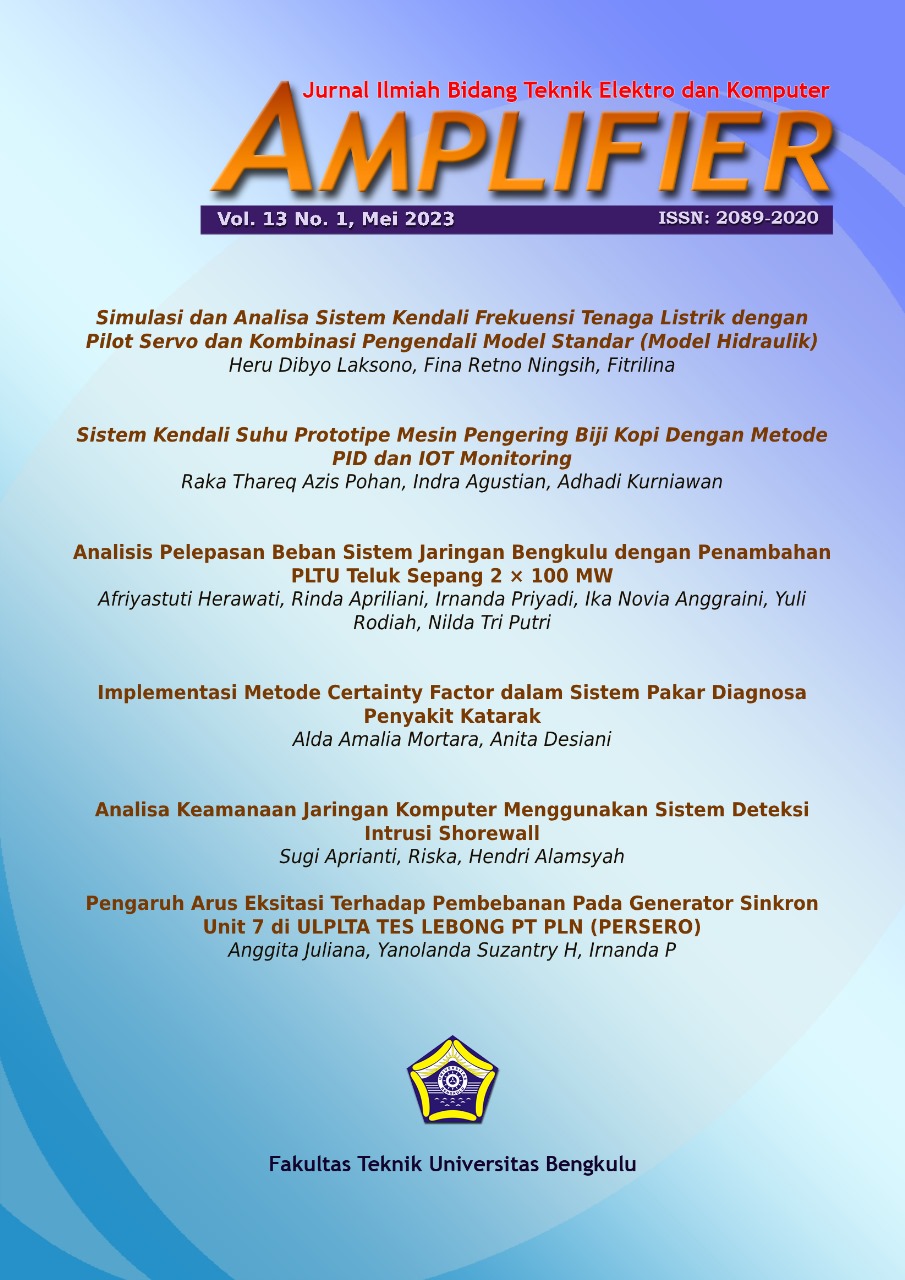Main Article Content
Abstract
Kualitas dari suatu operasi sistem tenaga listrik salah satunya ditentukan dari kestabilan nilai frekuensi pada sistem. Sistem kendali frekuensi tenaga listrik berfungsi untuk menjaga kestabilan frekuensi pada sistem tenaga listrik agar berada pada nilai normal dengan batas toleransi yang telah ditetapkan, yaitu 50Hz dengan toleransi ±2%. Tujuan dari penelitian ini adalah untuk memperoleh informasi tentang perbandingan tanggapan sistem tanpa pengendali, dengan pengendali, dengan pilot servo, dengan pengendali dan pilot servo, serta mengetahui range konstanta transient droop dan reset time yang memenuhi kriteria perancangan. Hasil analisa menunjukkan bahwa performansi terbaik ditunjukkan saat sistem ditambahkan pengendali PD dengan nilai ess masukan undak = 0.0415, waktu naik (tr) = 0.37576 detik, waktu puncak (tp) = 1.6172 detik, waktu keadaan mantap (ts) = 3.5498 detik, dan lewatan maksimum (Mp) = 14.306%, sedangkan pada sistem dengan variasi konstanta transient droop dan reset time, tidak ada nilai konstanta yang memenuhi kriteria perancangan. Setiap parameternya memiliki hubungan yang berbeda dengan variasi konstanta.
Article Details
Copyright (c) 2023 Heru Dibyo Laksono, Fina Retno Ningsih , Fitrilina

This work is licensed under a Creative Commons Attribution-ShareAlike 4.0 International License.
Authors who publish with this journal agree to the following terms:
- Authors retain copyright and grant the journal right of first publication with the work simultaneously licensed under a Creative Commons Attribution License that allows others to share the work with an acknowledgment of the work's authorship and initial publication in this journal.
- Authors are able to enter into separate, additional contractual arrangements for the non-exclusive distribution of the journal's published version of the work (e.g., post it to an institutional repository or publish it in a book), with an acknowledgment of its initial publication in this journal.
- Authors are permitted and encouraged to post their work online (e.g., in institutional repositories or on their website) prior to and during the submission process, as it can lead to productive exchanges, as well as earlier and greater citation of published work (See The Effect of Open Access).
- This work is licensed under a Creative Commons Attribution-ShareAlike 4.0 International License.
